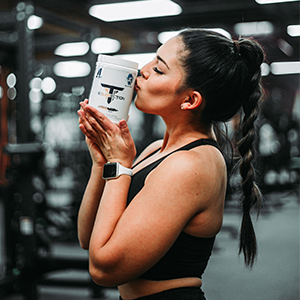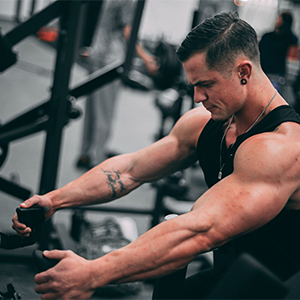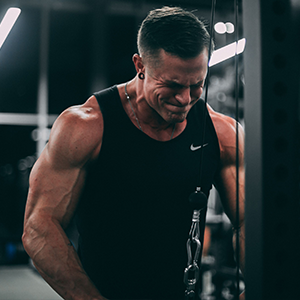
The Dos and Don'ts of Exercising in Summer
Summer is the perfect time to take your workouts outdoors and soak up some sunshine. However, exercising in the heat comes with its own set of challenges and risks. From dehydration to heat stroke, the summer heat can be unforgiving if you’re not careful. To help you stay safe and get the most out of your summer workouts, we’ve put together a comprehensive guide on the dos and don’ts of exercising in summer.
The Importance of Summer Fitness
Exercising during summer can boost your mood, enhance your vitamin D intake, and provide a refreshing change from indoor workouts. However, the increased temperatures and humidity levels require a strategic approach to stay safe and effective in your fitness routine.
The Dos of Exercising in Summer
1. Do Hydrate Properly
Staying hydrated is crucial when exercising in hot weather. Dehydration can lead to heat exhaustion or heat stroke, both of which are serious conditions.
Drink Plenty of Water:
Aim to drink at least 8-10 glasses of water a day, and increase your intake during and after exercise.
Electrolyte Balance:
Incorporate drinks that replenish electrolytes lost through sweat, such as sports drinks or coconut water.
Monitor Your Hydration:
Check your urine color to gauge hydration levels—light yellow is ideal.
2. Wear Appropriate Clothing
Your choice of clothing can significantly impact your comfort and safety during summer workouts.
Lightweight and Breathable Fabrics:
Choose materials like cotton or moisture-wicking fabrics that allow your skin to breathe and help sweat evaporate.
Light-Colored Clothing:
Dark colors absorb more heat, while light colors reflect it, keeping you cooler.
Hats and Sunglasses:
Wear a wide-brimmed hat to protect your face and eyes from the sun, and sunglasses with UV protection.
3. Do Apply Sunscreen
Protecting your skin from harmful UV rays is essential.
Broad-Spectrum Sunscreen:
Use a sunscreen with at least SPF 30 that protects against both UVA and UVB rays.
Reapply Regularly:
Reapply every two hours, or more frequently if you’re sweating heavily or swimming.
4. Do Time Your Workouts Wisely
Timing your workouts to avoid the peak heat of the day can prevent heat-related illnesses.
Early Morning or Late Evening:
These times are typically cooler and less humid.
Shorter Sessions:
Consider shorter, more frequent workouts to avoid prolonged exposure to the heat.
5. Do Listen to Your Body
Your body sends signals when it’s time to slow down or stop.
Recognize Signs of Heat Exhaustion:
Symptoms include heavy sweating, weakness, dizziness, nausea, headache, and muscle cramps.
Take Breaks:
Rest in the shade and hydrate whenever you feel overly fatigued or lightheaded.
The Don’ts of Exercising in Summer
1. Don’t Ignore the Weather Conditions
Ignoring weather forecasts can lead to dangerous situations.
Heat Index:
Pay attention to the heat index, which considers both temperature and humidity levels. Avoid exercising outdoors when the heat index is above 90°F (32°C).
Storm Warnings:
Be mindful of thunderstorms and lightning, and seek shelter if a storm is approaching.
2. Don’t Overexert Yourself
Pushing too hard in extreme heat can be hazardous.
Adjust Intensity:
Lower the intensity of your workouts during particularly hot days. Opt for moderate exercises such as walking, yoga, or swimming.
Take it Slow:
Gradually acclimate your body to the heat over a week or two by slowly increasing your outdoor exercise duration and intensity.
3. Don’t Wear Heavy or Non-Breathable Clothing
Wearing the wrong clothing can exacerbate heat-related issues.
Avoid Heavy Fabrics:
Heavy, non-breathable fabrics can trap heat and prevent sweat from evaporating, hindering your body’s cooling mechanism.
Avoid Tight Clothing:
Tight clothing can restrict circulation and increase the risk of overheating.
4. Don’t Skimp on Recovery
Recovery is even more crucial in hot weather.
Cool Down:
Include a proper cool-down period after your workout to gradually bring your heart rate down.
Post-Workout Hydration:
Continue to hydrate after your workout to replenish lost fluids.
Rest and Rejuvenate:
Allow your body adequate rest between sessions to recover fully and avoid heat-related fatigue.
5. Don’t Underestimate the Power of Shade and Ventilation
Finding cooler environments can help maintain a safer workout routine.
Seek Shade:
Whenever possible, perform your exercises in shaded areas to reduce direct sun exposure.
Indoor Alternatives:
On particularly hot days, consider working out indoors where you can control the temperature, such as in a gym or at home.
Tips for Specific Types of Summer Workouts
Running
Early or Late Runs:
Opt for early morning or late evening runs when temperatures are cooler.
Hydration Packs:
Use hydration packs or belts to carry water with you.
Slow Down:
Don’t aim for personal records on hot days; focus on maintaining a steady pace.
Cycling
Helmet Vents:
Ensure your helmet has adequate ventilation to keep your head cool.
Sunscreen:
Apply sunscreen on exposed skin, including the back of your neck and arms.
Rest Stops:
Plan your route with regular rest stops in shaded areas.
Swimming
Outdoor Pools:
Swimming in outdoor pools can be refreshing, but remember to apply waterproof sunscreen.
Hydration:
Even though you’re in the water, you still need to hydrate regularly.
Safety First:
Always swim with a buddy and follow local swimming guidelines.
Yoga and Stretching
Cool Environment:
Practice in a shaded or air-conditioned space.
Hydration:
Keep a water bottle nearby and take sips between poses.
Mindful Practice:
Pay attention to your body’s responses and modify poses as needed.
Conclusion
Exercising in summer can be invigorating and rewarding if done correctly. By following these dos and don’ts, you can enjoy your workouts while staying safe and healthy. Remember, the key is to respect the heat and listen to your body. Stay hydrated, dress appropriately, and adjust your routine according to the weather conditions. With these precautions, you’ll be well on your way to a safe and enjoyable summer fitness journey.
Embrace the summer sun, but do it wisely. Happy exercising!




Leave a comment